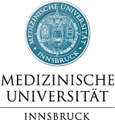Donnerstag, 24.03.2022
AURORA Lecture series: Inequality in education – research traditions in selected countries in Europe and beyond
17:15 - 18:45 Uhr
online event, Guest-links and passwords for each session have to be requested individually via Lenz.Luther@student.uibk.ac.at; for students registration: 800871
Anmeldung ist nicht erforderlich
Eintritt / Kosten: /
Vortragende/r
Philipp Schnell
Philipp Schnell currently works as a Scientific Project Officer at the Education Policy Department of the Austrian Chamber of Labour, as well as lecturer at the Department of Sociology at the University of Vienna.
Weitere Informationen
Philipp Schnell – Short CV
Philipp Schnell currently works as a Scientific Project Officer at the Education Policy Department of the Austrian Chamber of Labour, as well as lecturer at the Department of Sociology at the University of Vienna. His PhD in Sociology was awarded by the University of Amsterdam in 2012 and he has completed post-doctoral assignments at the Austrian Academy of Sciences, the University of Vienna and the Swiss Forum for Migration and Population Studies. He further held visiting positions at the Institut National d'Études Démographiques (INED) in Paris and at the Institute for Migration and Ethnic Studies at the University of Amsterdam. Philipp has worked on various projects related to immigration, education and social mobility - funded by, amongst others, the European Commission, JPI Urban Europe, and the Austrian Science Fund (FWF). Most of his work is comparative in nature and has been published in journals, such as ANNALS of the American Academy of Political and Social Science; Migration Studies; Population, Space and Place or the Journal of International Migration and Integration. While the core focus of his research is still the intersection between education and immigration, lately he has been working more on projects related to education policies. Amongst others, he is currently co-editing a special issue on Far-right parties and educational policy in contemporary European democracies.
Abstract – presentation
Ethnic Educational Inequalities in Austria.
Equity Research between family background, educational system and language policies
This talk offers a systematic review of research in Austria on the relationship between race/ethnicity and educational inequality from 1980 until today. Five major research traditions are identified: (1) political arithmetic; (2) family background; (3) structures of educational systems; (4) intercultural education and discrimination and (5) multilinguality, with research on 'family background' and 'political arithmetic' being the most dominant research traditions. Most of the research conducted in Austria focuses on explaining 'underachievement' in relationship to 'children of immigrants' and 'Turkish' and '(former) Yugoslavia' minority students and is characterized either by the use of quantitative research methods and a more positivistic approach to social sciences or by discourse analyses and a critical constructivist approach from researchers in the 1980ies, 1990ies and 2000s from political science and sociology, nowadays also rooted in socio-linguistics and related fields. Equity in this field of research addresses as much socio-economic background as family language in the Austrian context. This rich body of research is written mainly in German and developed in a context characterized by a close collaborative relationship between sociologists, political scientists, sociolinguists, education researchers and the Ministry of Education but also international bodies such as the Council of Europe, the European Union and the OECD. The common aim of these actors is the production of knowledge which should enable a shift in policy that emphasises assimilation and monolingualism over multiculturalism and multi- or plurilingualism. This does not preclude that at the same time other political actors in other Ministries follow different if not contradicting aims, the teaching force being split between those different aims and strategies.
Weitere Termine & Sprecher*innen / Dates and Speakers
https://www.uibk.ac.at/events/info/2022/aurora-lecture-series
Veranstalter
Barbara Herzog-Punzenberger
Professor of educational sciences

